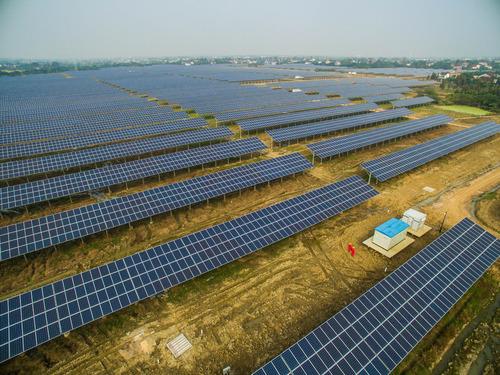by Xu Chi
GENEVA, March 9 (Xinhua) -- A world-leading biologist and climate scientist has expressed optimism about China's role in global climate actions.
"We know China can change quickly like it did in the past in so many ways and produced so many benefits for its population. I have no doubt in the coming decade it can produce cleaner air, cleaner energy, and create greater prosperity," Professor Tim Flannery at the Graduate Institute of International and Development Studies in Geneva told Xinhua in a recent video interview.
"The Chinese system of five-year planning has been tremendously productive, and I look forward to the 14th Five-Year Plan with great expectation," he said.
China's 14th Five-Year Plan will outline the top priorities of the economic and social development of the world's second-largest economy from 2021 to 2025.
China will make concrete efforts to achieve the peaking of carbon emissions by 2030 and carbon-neutrality by 2060, according to the government work report submitted Friday to the national legislature for deliberation.
Flannery said he is paying attention to the emission reduction in China for the coming five to 10 years, China's adaptation to the inevitable effects arising from climate change, as well as the usage of drawdown technologies to capture, store and utilize atmospheric carbon.
From 2007 to 2009, Flannery chaired the Copenhagen Climate Council, an awareness-raising civil society organization, in preparation for the United Nations climate summit in Copenhagen, which failed to reach a global agreement.
Noting that China "in particular came to Copenhagen to act," Flannery appealed to the international community to join the efforts.
"I think the situation has fundamentally changed," he stressed, "because the price of clean energy has dropped so much, to address climate change has become a win-win situation. The impetus for action is only growing stronger, those who act now will be better off."
Flannery expressed concern that cutting the emissions alone will not suffice.
"To avoid serious consequences, scientists tell us to reduce emissions roughly by 45 percent over the next 10 years. Given all the international pledges together, we are only on track to reduce by 1 percent," he warned. "So we need to urgently consider capturing and sequestering atmospheric carbon dioxide."
As an advocate for seaweed farming as a solution to capture and sequester atmospheric carbon dioxide, Flannery said: "Seaweed grows very rapidly. It sucks the carbon dioxide from the upper layer of the ocean, hence from the atmosphere, fixes the carbon, and some of the carbon can be transported by currents or other means, into the deep oceans."
"It's one of few industries we have that are already scalable and can create enormous benefits: it can deacidify oceans, we can grow high-quality protein, and we can deal with climate change," he said.
Saying that he was "impressed" by the experience East Asia has in seaweed farming, Flannery noted that China grows and harvests about three quarters of the world's seaweed.
Apart from inshore seaweed farming, he called on the international community to explore the feasibility of mid-ocean seaweed farming.
The increase and decrease of greenhouse-gas emissions in one country "will impact all countries. The gases emitted, wherever they are generated, will be mixed in the planetary atmosphere in a matter of weeks or months," he said.
"For example, the gas atoms emitted in Australia will reach China in weeks or months. That's why we need a common basis for global climate actions," Flannery said, further underscoring the importance of international cooperation on climate actions. Enditem




 A single purchase
A single purchase









